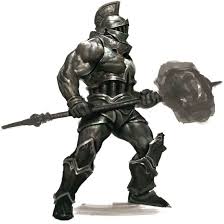中文词源
brute 野蛮的
来自词根bar, 重,见barometer, 气压计,gravity, 重力。此处词义由重到呆滞,愚蠢,野兽,最后指野兽般的,野蛮的。
英语词源
- brute
-
brute: [15] The primordial meaning of brute appears to be ‘heavy’. It comes from Latin brūtus ‘heavy’, and it has been speculated that it is related to Latin grāvis ‘heavy’ (from which English gets grave, gravity, and grieve). In Latin the sense ‘heavy’ had already progressed to ‘stupid’, and it later developed to ‘of the lower animals’. It was with this meaning that the word reached English via French. Connotations of ‘cruelty’ do not begin to appear until the 17th century. Brut meaning ‘very dry’ in relation to champagne is a late 19th-century borrowing of the French adjectival form brut, literally ‘rough’.
- brute (adj.)
- early 15c., "of or belonging to animals," from Middle French brut "coarse, brutal, raw, crude," from Latin brutus "heavy, dull, stupid," an Oscan word, from PIE root *gwere- (2) "heavy" (see grave (adj.)). Before reaching English the meaning expanded to "of the lower animals." Used of human beings from 1530s.
- brute (n.)
- 1610s, from brute (adj.).
权威例句
- 1. The burly brute swaggered forward, towering over me, and shouted.
- 五大三粗的恶汉趾高气扬地走过来,居高临下地对我咆哮着。
- 2. Boxing is a test of skill and technique, rather than brute strength.
- 拳击考验的是技能和技术,不是蛮力。
- 3. Custer was an idiot and a brute and he deserved his fate.
- 卡斯特是个白痴,是个残暴的家伙,他罪有应得。
- 4. He was a great brawny brute of a man.
- 他是个魁梧壮实、粗野的人。
- 5. His father was a drunken brute.
- 他父亲是个蛮横的醉鬼。

